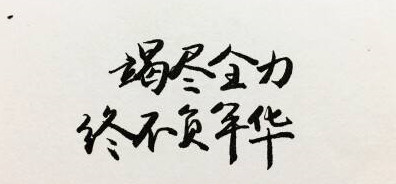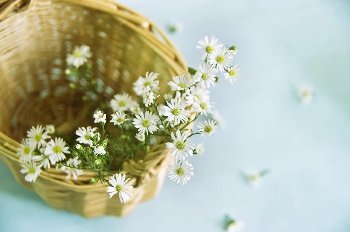 摘要:
7到8年级的所有英语的语法初中英语重要句型总结第一组:1.It’stimefo r...It’stimetodosth.2.It’sbadfor...3.It’sgoodfor.....
摘要:
7到8年级的所有英语的语法初中英语重要句型总结第一组:1.It’stimefo r...It’stimetodosth.2.It’sbadfor...3.It’sgoodfor..... 7到8年级的所有英语的语法
初中英语重要句型总结第一组:
1. It’s time for ...
It’s time to do sth.
2. It’s bad for ...
3. It’s good for ...
4. be late for ...
5. What’s wrong with …
What’s the matter with ...
What’s the trouble with ...
6. There is something wrong with ...
7. be afraid of …
be afraid to do sth.
8. neither…nor….
9. either….or….
10. both…and…
11. not…at all.
第二组:主语+谓语+宾语
1. help sb. do sth
2. had better do sth.
3. want to do sth.
4. would like to do sth.
5. stop to do sth
stop doing sth.
6. begin to do sth.
7. decide to do sth.
8. like to do sth.
9. hope to do sth.
10. do one’s best to do sth.
11. agree to do sth.
12. enjoy doing sth.
13. keep (on) doing sth.
14. finish doing sth.
15. go on doing sth.
16. be busy doing sth.
17. feel like doing sth.
18. practise doing sth.
19. spend time/ money on sth
20. spend time in doing sth.
21. prevent/ stop sb. from doing sth.
第三组:主语+及物动词+间接宾语(人)+直接宾语(物)
1. give sb. sth. = give sth. to sb.
2. pass sb. sth. = pass sth. to sb.
3. show sb. sth.= show sth. to sb.
4. bring sb. sth.= bring sth. to sb.
5. tell sb. sth.
6. teach sb. sth.
7. buy sb. sth.=buy sth for sb.
8. lend sb. sth=lend sth to sb.
9. help sb. do sth.
help sb. with sth.
10. teach sb. to do sth.
第四组:主语+及物动词+宾语+宾语补足语
1. tell sb. (not) to do sth.
2. ask sb. (not) to do sth.
3. would like sb. to do sth.
4. keep sb. +形容词
5. keep sb. doing sth.
6. let sb. (not) do sth.
7. make sb. (not) do sth.
8. have sth. done
9. see/ hear/ watch sb. do sth.
10. see/ hear/ watch sb. doing sth.
第五组:It 作形式主语
1. It takes sb. some time to do sth.
2. It is +(important, necessary, difficult, possible, polite…)for sb. to do sth.
第六组:复合句
时间状语从句:
1. not …..until+时间状语从句
2. as soon as +时间状语从句
比较状语从句:
1. …as+形容词或词原级+as….
2. …not as/ so+形容词或副词原级+as…
结果状语从句:
…so +形容词或副词的原级+that引导的结果状语从句
相关句型:…too+形容词或副词原级+to do sth.
宾语从句:
1. I don’t think that…
2. We hope/ make sure that…
3. I wonder if…
让步状语从句:
由动词开头构成的短语、词组很多。复习时应分类处理:
一、动词+介词
1.look at…看…, look like … 看上去像……, look after …照料…
2.listen to…听……
3.welcome to…欢迎到……
4.say hello to …向……问好
5.speak to…对……说话
此类短语相当于及物动词,其后必须带宾语,但宾语无论是名词还是代词,都要放在介词之后。
二、动词+副词
“动词+副词”所构成的短语义分为两类:
A.动词(vt.)+副词
1.put on 穿上 2.take off脱下 3.write down记下
此类短语可以带宾语,宾语若是名词,放在副词前后皆可;宾语若是人称代词,只能放在副词的前面。
B.动词(vi)+副词。
1.come on赶快 2.get up起床 3.go home回家
4.come in进来 5.sit down坐下 6.stand up起立
此类短语属于不及物动词,不可以带宾语。
三、其它类动词词组
1.close the door 2.1ook the same 3.go to work/class
4.be ill 5.have a look/seat 6.have supper
7.1ook young 8.go shopping 9.watch TV/games
作者: 轩轩小子 2008-2-25 19:09 回复此发言
--------------------------------------------------------------------------------
2 英语知识哦!!!!!!!!!!!!
10. play games
[介词短语聚焦]
“介词+名词/代词”所构成的短语称为介词短语。现将Unitsl-16常用的介词短语按用法进行归类。
1.in+语言/颜色/衣帽等,表示使用某种语言或穿着……。
2.in + Row/ Team/ Class/ Grade等,表示“在……排/队/班级/年级”等。
3.in the morning/ afternoon/ evening/ 表示“在上午/下午/傍晚”等一段时间。
4.in the desk/ pencil-box/bedroom 等表示“在书桌/铅笔盒/卧室里”。
5.in the tree表示“在树上 (非树本身所有)”;on the tree表示“在树上(为树本身所有)”。
6.in the wall表示“在墙上(凹陷进去)”;on the wall表示“在墙上(指墙的表面)”。
7.at work(在工作)/at school(上学)/at home(在家)应注意此类短语中无the。
8.at + 时刻表示钟点。
9.like this/that表示方式,意为“像……这/那样”。
10.of短语表示所属关系。
11.behind/ beside/ near/ under+ 名词等,表示方位、处所。
12.from与to多表示方向,前者意为“从……”,后者意为“到……”。
另外,以下这些短语也必须掌握。如:on duty, after breakfast, at night, at the door, in the middle, in the sky, on one’s bike等。
[重点句型大回放]
1.I think…意为“我认为……”,是对某人或某事的看法或态度的一种句型。其否定式常用I don’t think…,
2.give sth. to sb./ give sb. sth. 意为“把……给……”,动词give之后可接双宾语,可用这两种句型;若指物的宾语是人称代词时,则只能用give it/ them to sb.
3.take sb./ sth. to…意为“把……(送)带到……”,后常接地点,也可接人。
4.One…, the other…/One is…and one is…意为“一个是……;另一个是……”,必须是两者中。
5.Let sb. do sth. 意为“让某人做某事”,人后应用不带to的动词不定式,其否定式为Don’t let sb,do sth.,或Let sb. not do sth. 另外,Let’s 与Let us的含义不完全相同,前者包括听者在内,后者不包括听者在内,
6.help sb. (to) do sth./help sb. with sth.意为“帮助某人做某事”,前者用不定式作宾补,后者用介词短语作宾补,二者可以互换.
7.What about…?/How about…?意为“……怎么样?”是用来询问或征求对方的观点、意见、看法等。about为介词,其后须接名词、代词或V-ing等形式。
8.It’s time to do…/ It’s time for sth. 意为“该做……的时间了”,其中to后须接原形动词,for后可接名词或V-ing形式。
9.like to do sth./like doing sth.意为“喜欢做某事”, 前一种句型侧重具体的一次性的动作;后一种句型侧重习惯性的动作,
10.ask sb.(not) to do sth. 意为“让某人(不要)做某事”,其中ask sb.后应接动词不定式,
11.show sb. sth. / show sth. to do. 意为“把某物给某人看”,该句型的用法同前面第2点。
12.introduce sb. to sb. 意为“把某人介绍给另一人”;introduce to sb.则是“向某人作介绍”。
[重点短语快速复习]
1.kinds of 各种各样的
2. either…or…或者……或者……,不是……就是……
3. neither…nor…既不……也不……
4. Chinese tea without, anything in it 中国清茶
5. take a seat 就坐
6. home cooking 家常做法
7. be famous for 因……而著名
8. on ones'way to在……途中
9. be sick/ill in hospital生病住院
10. at the end of在……的尽头,在……的末尾
11. wait for 等待
12. in time 及时
13. make one’s way to…往……(艰难地)走去
14. just then 正在那时
15. first of all 首先,第一
16. go wrong 走错路
17. be/get lost 迷路
18. make a noise 吵闹,喧哗
19. get on 上车
20. get off 下车
作者: 轩轩小子 2008-2-25 19:09 回复此发言
--------------------------------------------------------------------------------
3 英语知识哦!!!!!!!!!!!!
21. stand in line 站队
22. waiting room 候诊室,候车室
23. at the head of……在……的前头
24. laugh at 嘲笑
25. throw about 乱丢,抛散
26. in fact 实际上
27. at midnight 在半夜
28. have a good time=enjoy oneself玩得愉快
29. quarrel with sb. 和某人吵架
30. take one’s temperature 给某人体温
31. have/get a pain in…某处疼痛
32. have a headache 头痛
33. as soon as… 一……就……
34. feel like doing sth. 想要干某事
35. stop…from doing sth. 阻止……干某事
36. fall asleep 入睡
37. again and again再三地,反复地
38. wake up 醒来,叫醒
39. instead of 代替
40. look over 检查
41. take exercise运动
42. had better(not) do sth. 最好(不要)干某事
43. at the weekend 在周末
44. on time 按时
45. out of从……向外
46. all by oneself 独立,单独
47. lots of=a lot of 许多
48. no longer/more=not…any longer/more 不再
49. get back 回来,取回
50. sooner or later迟早
51. run away 逃跑
52. eat up 吃光,吃完
53. run after 追赶
54. take sth. with sb. 某人随身带着某物
55. take(good) care of…=look after…(well) (好好)照顾,照料
56. think of 考虑到,想起
57. keep a diary 坚持写日记
58. leave one by oneself 把某人单独留下
59. harder and harder 越来越厉害
60. turn on打开(电灯、收音机、煤气等)
61. turn off 关
[重温重点句型]
1.So + be/助动词/情态动词+主语.
前面陈述的肯定情况也适于另一人(物)时,常用到这种倒装结构,表示“另一人(物)也如此。”前面陈述的否定情况也适于另一人(物)时,常用“Neither/ Nor + be/助动词/情态动词+主语.”这种倒装结构。
注意:“So+主语+be/助动词/情态动词.”这一句型常用于表示赞同,进一步肯定对方的看法,表示“的确如此。”“是呀。”
neither...nor... , both...and... , either...or... , not only...but also...等句型要遵循相邻原则。
2.Turn right/left at the first/second/…crossing.
这一指路的句型意为“在第一/二/……个十字路口向右/左拐。”相当于Take the first /second/…turning on theright/left.
3.It takes sb.some time to do sth.
此句型表示“干某事花了某人一段时间。”其中的it是形式主语,后面的动词不定式(短语)才是真正的主语.
就等于spent time on sth / spent time in doing sth
4.…think/find + it + adj. + to do sth.
此句型中的it是形式宾语,不可用其它代词替代,形容词作宾语的补足语,后面的动词不定式(短语)才是真正的宾语。
5.What’s wrong with…?
此句型相当于What’s the matter/ trouble with…?后跟某物作宾语时,意为“某物出什么毛病了?”后跟某人作宾语时,意为“某人怎么了?”
6.too…to…
在so…that…复合句中,that后的句子是否定句时,常与简单句too…to…(太……而不能……)进行句型转换。
在so…that…复合句中,that后的句子是肯定句时,常与简单句…enough to…进行句型转换.
7.Sorry to hear that.
全句应为I’m sorry to hear that. 意为“听到此事我很难过(遗憾)。”常用于对别人的不幸表示同情、遗憾之意。
[重点句型、词组大盘点]
1. She used to be a Chinese teacher. 她过去是一位汉语老师。
[用法] used to + 动词原形,表示过去经常性的动作或存在的状态,含有现在不再如此之意。
[搭配] used to do的否定式可以是usedn’t to do或didn’t use to do.
[比较] used to do sth. 过去常做某事;be/ get used to doing sth. 习惯于做某事;be used to do sth. 被用来做某事。
作者: 轩轩小子 2008-2-25 19:09 回复此发言
--------------------------------------------------------------------------------
4 英语知识哦!!!!!!!!!!!!
2.…return it sooner or later.
……迟早要将它归还。
[用法] l)sooner or later意为“迟早”、“早晚”。
2)return此处用作及物动词,意为“归还”,相当于give back.
[拓展]return还可用作不及物动词,意为“返回”,相当于go back或come back。
3.No matter what the weather is like…无论天气……
[用法]no matter what 相当于whatever,其意为“无论什么”,引导状语从句。
[拓展]类似no matter what的表达方式还有:
no matter when无论什么时候
nbsp; nbsp;nbsp;no matter where无论什么地方
no matter who无论谁
no matter how 无论怎么样
4. A young man practised speaking English with Mr. Green.
一位年经人与格林先生练习讲英语。
[用法]practise doing sth. 表示“实践、练习(做)某事”。
[拓展]practice名词,“实践”、“实施”、“练习”;put a plan into practice实行某计划。
5. He encouraged everyone to take part in protecting our lakes, rivers, seas and oceans.
他鼓励大家参加保护我们的湖泊、河流和海洋的活动。
[用法]1)encourage用作动词,意思是“鼓励”、“支持”。
2)take part in“参加”,常表示参加活动。
3)protect 是动词,表示“防御”、“保护”。
[搭配]1)encourage sb. in sth.在某事上鼓励或支持某人
nbsp;encourage sb. to do sth.鼓励某人干某事
2)protect sh. from sth.使某人不受某事侵袭或伤害
6. …to warn people about sharks in the water. ……警告人们当心水里的鲨鱼。
[用法] warn用作动词,意思是“警告”、“警戒”。
[搭配]1)warn sb.+ that从句
2)warn sb. of sth. 警告某人某事
3)warn sb. to do sth.告诫某人做某事
4)warn sb. against(doing) sth.告诫某人当心某事/不要做某事
常用动词短语
1.have: have a cold\cough\fever\headache\pain have a great effect on
have a good time have a match\meeting\discussion had better do sth
have no choice but to do sth have a rest have on
2.make: make a promise make a decision make room for make sense make use of make a face make an effort to do sth make a living make up one’s mind to do sth make a mistake make a noise make a speech make an apology make it a rule
make it make into make…out of… make up
make of make from make a call
3.take: take a seat take a message for take an interest in
take off take on (a new look) take over take steps to do
take some measures to do sth take care take charge take part in
take place take the place of take turns to do sth take medicine
take up
4. go: go cold go hungry be gone go dad want a go
go skating\fishing\shopping\swimming go on doing sth go on to do sth go on with sth go down go well go head go out
go over go against go without go on a picnic go through
5.get: get down to doing sth get hurt\married\dressed\caught
get over get off get ready for get up get in get through get on well with get together get in to the habit of doing
get used to doing sth get rid of get tired of
6.put: put on put forward put off put out
put up put on weight put away put down
7.play: play an important part in play an important role in
play football play the piano
8.keep: keep back keep in touch with keep off keep out
keep one’s promise keep up keep up with keep sb from doing
keep on doing keep order
9.give: give away give out give off give up
作者: 轩轩小子 2008-2-25 19:09 回复此发言
--------------------------------------------------------------------------------
5 英语知识哦!!!!!!!!!!!!
give in give some advice on… give a talk on sth give first aid
10.come: come about come across come on come out
come to oneself come true come up
11.bring: bring down bring in bring up bring along
12.break: break down break out break away from
break up break into break off break in
13.turn: turn down turn to sb turn into turn off turn in turn over turn against turn away turn on
turn up turn out to…
14.look: look out look up look down upon look after
look at look for look around look over look as if
look forward to doing sth look back upon look into look on
15.do: do sb a favour do up do one’s hair do a good deed do wrong
1.弄清词语自身结构用法学生做题时往往仅限于依据词语的中文含义,简单对照。这样就造成了许多中文正确,而英语结构上的错误。如“允许某人干某事”,allow sb to do sth,而不可用做agree sb to do sth.“同意干某事”说allow doing sth.而agree却应为agree to do sth.再如:“希望某人去干某事”expect sb to do sth.不可说为hopesbtodosth.“建议某人去干某事”,说advise sb to do.就不可说是suggest sb to do sth.这是根据动词自身的基本用法而决定的。这些更需要学习中不断积累。
下面是一些常用动词的不同结构用法:
A.以下动词与不定式连用即afford to do sth .afford,agree,appear,arrange,ask,attempt,care,claim,dare,decide,demand,desire,determine,expect,failhappen,
help,
hope,intend,learn,man-age,mean,need,offer,plan,pretend,promise,refuse,seem,used,want,wish
B.以下动词与动名词连用即admit doing sth admit,advise,allow,appreciate,avoid,can’t help,consider,delay,dreamof,enjoy,escape,excuse,feellike,finish,forbid,giveup,imagine,insiston,keep,mind,miss,
order,persistin,practice,putoff,request,require,risk,stand,stop,suggest
C.以下动词与不定式复合结构连用即advise sb to do sth.advise,allow,ask,beg,callon,cause,consider,dependon,encourage,expect,find,force,get,hate,instruct,invite,like,
long for,need,oblige,permit,persuade,prefer,remind,request,require,suppose,waitfor,warn,etc.let,have,make,(使役动词后的不定式去掉to)see,watch,observe,notice,look at,hear,listen to,feel(感官动词后的不定式去掉to)
常用动词短语
1.have: have a cold\cough\fever\headache\pain have a great effect on
have a good time have a match\meeting\discussion had better do sth
have no choice but to do sth have a rest have on
2.make: make a promise make a decision make room for make sense make use of make a face make an effort to do sth make a living make up one’s mind to do sth make a mistake make a noise make a speech make an apology make it a rule
make it make into make…out of… make up
make of make from make a call
3.take: take a seat take a message for take an interest in
take off take on (a new look) take over take steps to do
take some measures to do sth take care take charge take part in
take place take the place of take turns to do sth take medicine
take up
4. go: go cold go hungry be gone go dad want a go
go skating\fishing\shopping\swimming go on doing sth go on to do sth go on with sth go down go well go head go out
go over go against go without go on a picnic go through
5.get: get down to doing sth get hurt\married\dressed\caught
get over get off get ready for get up get in get through get on well with get together get in to the habit of doing
get used to doing sth get rid of get tired of
6.put: put on put forward put off put out
put up put on weight put away put down
7.play: play an important part in play an important role in
play football play the piano
8.keep: keep back keep in touch with keep off keep out
keep one’s promise keep up keep up with keep sb from doing
keep on doing keep order
9.give: give away give out give off give up
give in give some advice on… give a talk on sth give first aid
10.come: come about come across come on come out
come to oneself come true come up
11.bring: bring down bring in bring up bring along
12.break: break down break out break away from
break up break into break off break in
13.turn: turn down turn to sb turn into turn off turn in turn over turn against turn away turn on
turn up turn out to…
14.look: look out look up look down upon look after
look at look for look around look over look as if
look forward to doing sth look back upon look into look on
15.do: do sb a favour do up do one’s hair do a good deed do wrong
求人教版英语八年级下册语法归纳
Unit 1 Will people have robots?
重点语法:一般将来时态的应用
do/does 的一般将来时态形式:(shall/will) do
do/does 的一般将来时态的被动语态:(shall/will) be done
一般将来时态的肯定句、否定句、疑问句形式:
肯定句例句:People will have robots in a few years.
否定句例句:People (will not/won't) have robots in a few years.
一般疑问句例句:Will people have robots in a few years?
特殊疑问句例句:What will people have in a few years?
重点短语:won't = will not
they'll = they will
she'll = she will
he'll = he will
I'll = I will
fall in love with(sb./sth.) 爱上(某人/某物)
be able to do sth. 能够做某事
come true 实现
in the future 未来
hundreds of 数以百计的
thousands of 数以千计的
look for(sb./sth.) 寻找(某人/某物)
will → would 情态动词 will 的原形和过去式
may → might 情态动词 may 的原形和过去式
Unit 2 What should I do?
重点语法:过去将来时态(将来时态的委婉说法)
do/does 的过去将来时态形式:(should/would) do
do/does 的过去将来时态的被动语态:(should/would) be done
过去将来时态的肯定句、否定句、疑问句形式:
肯定句例句:You should write a letter to him.
否定句例句:You shouldn't write a letter to him.
一般疑问句例句:Should I write a letter to him?
特殊疑问句例句:What should I do?
重点短语:keep sb. out 不让某人进入
What's wrong? = What's the matter? = What's the problem? 怎么了?
out of style 不时髦的;过时的
call sb. up 给某人打电话
pay for sth. 为某事付款
part-time job 兼职工作
the same as = be same (to/with) 与……同样
in style 时髦的;流行的
get on [well] with sb. = get along [well] with sb. 与某人相处(好)
didn't = did not
couldn't = could not
as ... as possible 尽可能……(eg/ as soon as possible 尽快)
all kinds of 各种;许多
on the one hand 一方面
on the other hand 另一方面
ask sb. for sth. = ask sb. to do sth. 请求某人做某事
ask sb. not to do sth. 请求某人不要做某事
spend (money) on sth. = spend (money) [in] doing sth. 花钱做某事
sth. cost sb. (money) 某人花钱为了某事
take sb. sometime to do sth. 花某人时间做某事
find out 查明
find sb. doing sth. 发现某人做某事
be angry with sb. 生某人的气
be angry at sth. 生某事的气
the same age as = as old as 与某人年龄一样
have fight with sb. 与某人打架
learn to do sth. 学会做某事
not ... until ... 直到……才……
compare sth.(A) with sth.(B) 把某事(A)与某事(B)作比较
it's time for sth. = it's time to do sth. 到该做某事的时间了
maybe adv. 或许
may be (情态动词 + 动词原形)可能是
shall → should 情态动词 shall 的原形和过去式
pay → paid → paid 动词 pay 的原形、过去式和过去分词
Unit 3 What were you doing when the UFO arrived?
重点语法:过去进行时态
do/does 的过去进行时态形式:(was/were) doing
do/does 的过去进行时态的被动语态:(was/were) being done
过去将来时态的肯定句、否定句和疑问句形式:
肯定句例句:I was walking down the street when a UFO landed.
否定句例句:I wasn't walking down the street when a UFO landed.
一般疑问句例句:Were you walking down the street when a UFO landed?
特殊疑问句例句:What were you doing when a UFO landed?
动词 when 和 while 的选择:when 后加瞬间动词,while 后加延续性动词。
例句:The boy was walking down the street when the UFO landed.
=While the boy was walking down the street, the UFO landed.
感叹句
结构:(1) How + adj. + the + 主语 + 谓语动词
=(2) What + (a/an) + [adj.] + n. + 主语 + 谓语动词
例句:What a beautiful flower [it is]!
=How beautiful the flower is!
What beautiful flowers [they are]!
=How beautiful the flowers are!
重点短语:get out 出去;离开
take off 起飞
run away 逃跑;跑掉
come in 进来
hear about = hear of 听说
take place 发生
as ... as 像……一样(eg/ as old as him 像他一样老)
anywhere = everywhere = here and there 任何地方
think about 考虑
think of 认为
get up = get out of the bed 起床
at the doctor's 在诊所
every day 每一天
everyday adj. 日常的
most adj. 大部分
the most 最多的
in space 在太空中
national hero 民族英雄
all over the world = in the world 全世界
Unit 4 He said I was hard-working.
重点语法:宾语从句
结构:主语 + 谓语动词 + 宾语从句(主语 + 谓语动词 + 宾语/表语)
例句:----I'm good at English. He says. (改为加宾语从句的复合句)
----He says I'm good at English.
注意:①主句是一般现在时态,宾语从句的时态不受其影响。
例句:He says I'm good at English now.
He says I was good at mathematics when I was young.
②主句是过去时态,宾语从句也要用过去时态。
例句:He said I was good at mathematics when I was young yesterday.
He said I was good at English now yesterday.
③宾语从句是客观真理时永远用一般现在时态。
例句:Our teacher says 24 hours make a day.
Our teacher said the sun gives us so many energy yesterday.
④动词原形不能作主语,必须用其 -ing 形式。
例句:She said helping others changed her life.
重点短语:direct speech 直接引语
reported speech = indirect speech 间接引语
first of all = at first 首先
pass on 传递
be supposed to do sth. 应该做某事
be good at = do well in 在某方面做得好
in good health 身体健康
get over 克服
open up 打开
care for = take care of = look after 照料;照顾
not any more = not any longer = no longer 不再
have a cold 感冒
end-of-year exam 年终考试
get nervous 变得紧张
forget to do sth. 忘记做某事(该事未做)
forget doing sth. 忘记做某事(该事已做)
it's + adj. + [for sb.] + to do sth. 做某事[对某人来说]……(加形容词)
context 上下文
Unit 5 If you go to the party, you'll have a great time!
重点语法:if 引导的条件状语从句
结构:主句 + if + 条件状语从句
if + 条件状语从句 + [(comma)] + 主句
注意:在 if 引导的条件状语从句中,主句应用将来时态,状语从句用一般现在时态。
例句:You'll have a great time if you go to the party.
=If you go to the party, you'll have a great time.
重点短语:take away 拿走
around the world = all over the world 在世界各地
make a living 谋生
all the time = always 一直
What's the problem? = What's the matter? = What's wrong? 怎么了?
in order to do sth. 为了做某事
make sb. do sth. 使得某人做某事(to 省略,该结构是一个不带 to 的不定式。)
make sb. adj. 使得某人……(加形容词)
make sb. done 使得某人被做
be famous for 为……而出名
be famous
as 作为……而出名in class 在课堂上
spend ...(time/money) on sth. = spend ...(time/money) in doing sth. 花……(时间/钱)用于做某事
see sb. do sth. 看见某人做某事(强调整个过程)
see sb. doing sth. 看见某人做某事(强调偶然性)
say → said → said 动词 say 的原形、过去式和过去分词
tell → told → told 动词 tell 的原形、过去式和过去分词
eat → ate → eaten 动词 eat 的原形、过去式和过去分词
speak → spoke → spoken 动词 speak 的原形、过去式和过去分词
Unit 6 How long have you been collecting shells?
重点语法:现在完成进行时态
do/does 的现在完成进行时态形式:have/has been doing
do/does 的现在完成进行时态的被动语态:have/has been being done
现在完成进行时态所应用的场合:
①某事从过去发生一直持续到现在都在做
②过去发生的动作对现在造成影响
例:我已上了三年初中。
I have been in Junior School for 3 years.
自从那次他与我谈过心后,我天天都在进步。
I have been making progress since he talked with me that time.
现在完成进行时态的肯定句、否定句和疑问句形式:
肯定句例句:I have been skating for five hours.
否定句例句:I haven't been skating for five hours.
一般疑问句例句:Have you been skating for five hours?
特殊疑问句例句:How long have you been skating?
注意:瞬间动词不能和一段时间连用。
例句:你借这本书已经多长时间了?
How long have you been keeping this book?
重点短语:run out of 用完;用尽
by the way 顺便说说
be interested in doing sth. 对某事感兴趣
more than 比……多
far away 在远处
would like to do sth. = want to do sth. = feel like doing sth. 想要做某事
send sb. sth. = send sth. to sb. 把某物赠送给某人
in fact 实际上
room 房间(用于可数名词);空间(用于不可数名词)
common → more common → the most common 形容词 common 的原级、比较级和最高级
Unit 7 Would you mind turning down the music?
重点语法:mind [one's] doing sth. 介意(某人)做某事
重点短语:not at all 一点也不
turn down 调节使音量变小
right away = in a minute = at once 立刻;马上
wait in line 排队等候
cut in line 插队等候
hasn't = has not
keep ... down 压低声音;使缓和
at first = first of all 首先
take care 当心;小心
take care of = care about = look after 关心;照顾
break the rule 违规
obey the rule 遵守规定
put out 熄灭
pick sth. up 捡起某物
wait for sb. 等候某人
depend on 依赖;依靠
get back = return 要回
mean → meant → meant 动词 mean 的原形、过去式和过去分词
Unit 8 Why don't you get her a scarf?
重点语法:询问别人为什么要做或者不做某事
why don't you do sth. = why not do sth.
例句:Why don't you get her a camera? = Why not get her a camera?
what about = how about
例句:How about some tennis balls? = What about some tennis balls?
重点短语:fall asleep 入睡
give away 赠送;分发
hear of = hear about 听说
take an interest in = be interested in 对……感兴趣
make friends with 与……交友
make progress 取得进步
keep → kept → kept 动词 keep 的原形、过去式和过去分词
feed → fed → fed 动词 feed 的原形、过去式和过去分词
fall → fell → fallen 动词 fall 的原形、过去式和过去分词
hear → heard → heard 动词 hear 的原形、过去式和过去分词
Unit 9 Have you ever been to an amusement?
重点语法:现在完成时态
do/does 的现在完成时态形式:(have/has)
done
do/does 的现在完成时态的被动语态:(have/has) been done
现在完成时态主要强调过去发生的事情对现在的影响。
例句:我去年去过美国,那是我第一次出国。
I have ever been to America. It's the first time for me to go abroad.
重点短语:have a great time = have a good time = have fun = enjoy oneself 玩得高兴
on board 在船上
end up doing sth. 结束做某事
all year round = all over the year 终年
understand → understood → understood 动词 understand 的原形、过去式和过去分词
Unit 10 It's a nice day, isn't it?
重点语法:反意疑问句
反意疑问句由肯定陈述句加否定问句构成,或者由否定陈述句加肯定问句构成。
例句:He's a student, isn't he?
She's not his mother, is she?
回答反意疑问句时,要根据事实来回答。若事实是肯定的,则必须用 yes 回答。若事实是否定的,则必须用 no 回答。
例句:你还没有准备好,对吧?
You're not ready, are you?
是的,我没有准备好。
No, I'm not.
不,我准备好了。
Yes, I am.
重点短语:look through 浏览
come along 出现;发生
get along 相处
at least 至少
at most 至多
a thank-you note 感谢信
forget → forgot → forgotten 动词 forget 的原形、过去式和过去分词
little → less → least 形容词 little 的原级、比较级和最高级
many/much → more → most 形容词 many/much 的原级、比较级和最高级
八年级下册英语知识点总结
原发布者:baiyajia111
人教版八年级英语下册各知识点归纳总结Unti1what’sthematter?短语归纳1.toomuch太多2.liedown躺下3.getanX-ray做个X光检查4.takeone’stemperature量体温5.putsomemedicineon......在....上敷药6.haveafever发烧7.takebreaks/takeabreak休息8.withoutthinkingtwice没多想9.getoff下车10.takesbtothehospital送某人去医院11.waitfor等待12.toone’ssurprise使.......惊讶的13.thanksto多亏于;由于14.intime及时15.thinkabout考虑16.haveaheartproblem患有心脏病17.getintothetrouble遇到麻烦18.dotherightthing做正确的事情事情19.falldown摔倒20.put......onsth把...放在某物上21.gethit/sunburned摔伤/烧伤22.beinterestedin对.....感兴趣23.beusedto习惯于....24.takerisks/takearisk挑战25.loseone’slife失去生命26.becauseof因为27.runoutof用完28.cutoff切除29.getoutof从...出来30.makeadecision/decisions做决定31.beincontrolof掌管;管理32.giveup放弃用法归纳1.needtodosth.需要去做某事2.seesbdoin
八年级下英语语法重点的课本内容
1,句子的5种类型2,宾语从句
在各种时态下,从句的变化
宾语从句的几个引导词:that(一般可省略不写)
if/whether/whether...or not(一般疑问句)
疑问词:why/what/where/whom/how old...
学会运用so+be/助动词/情态动词+主语这个句型
because/so/so that的区分
while和when的区分与运用
由to引导的句子
直接引语和间接引语的互换
状语从句
呵呵,好久没复习了,思绪有点乱,希望对你有所帮助!
八下英语语法
人教版新目标8年级下英语语法重点
Unit 1 Will people have robots?
重点语法:一般将来时态的应用
Unit 2 What should I do?
重点语法:过去将来时态(将来时态的委婉说法)
Unit 3 What were you doing when the UFO arrived?
重点语法:过去进行时态
Unit 4 He said I was hard-working.
重点语法:宾语从句
Unit 5 If you go to the party, you'll have a great time!
重点语法:if 引导的条件状语从句
Unit 6 How long have you been collecting shells?
重点语法:现在完成进行时态
Unit 7 Would you mind turning down the music?
重点语法:mind [one's] doing sth. 介意(某人)做某事
Unit 8 Why don't you get her a scarf?
重点语法:询问别人为什么要做或者不做某事
Unit 9 Have you ever been to an amusement?
重点语法:现在完成时态
Unit 10 It's a nice day, isn't it?
重点语法:反意疑问句
人教版八年级英语下册的语法知识?需要书上的句子!
二.重要句型、短语。(一) 重要句型。
1.There will be less pollution, more trees and fewer cars in 100 years.
2. What should I do? You should do more exercise. You could buy some books.
3. When the man came into the room, I was reading a book.
=While I was reading a book, a man came into the room.
4. He said they would come here in 5 minutes and they were on the way.
5. We will take you to the zoo if we have free time.
6. We have been studying English for 3 years.
=We have been studying English since 3 years ago.
7. Would you mind closing the window?
= Could you please close the window?
=Please close the window.
= You have to close the window.
8. Why don’t you get her a scarf?
= Why not get her a scarf?
= How about getting her a scarf?
= Let’s get her a scarf.
9. I have been to the zoon last year.
My father has gone to Beijing now.
They have already received my letter.
10. You like playing soccer, don’t you?
You have nothing to tell me, do you?
11. It’s time for sth. It’s time to do sth. It’s time for sb to do sth.
12. find it adj (for sb) to do sth. It’s adj/n. (for sb) to do sth.
(二)重要短语的用法。
1.few, a few; little , a little.
2. many , much, a lot of , lots of
3.more, fewer, less.
4. can, be able to
5.help with sth, help sb do sth.
6.can, may must, could ,should ,might.
7.pay, spend, take, cost.
8.except, besides.
9.stop to do sth, stop doing sth. start to do sth start doing sth.
10.forget to do sth, forget doing sth.
11.try to do sth try doing sth.
12.enough+n, adj +enough, enough to do sth.
13. the same as, be different from
14.think about doing sth, complain about doing.
15. not …until, not … anymore.
16.something important, nothing to eat. something nice to drink.
17. take part in, join, enter,
18. in front of, in the front of.
19.take care of, look after.
20. surprise, be surprised to do sth
21.one… the other, another, other, others.
22. bring, take; borrow, lend.
23. be good at sth/ doing sth… be better at sth/ doing sth
24.have a good time, have a great time, have a wonderful time. have fun
25.either,either…or, neither, neither…nor, both …and
26. how, how long, how long, how often, how far, how soon, how old.
27. how many, how much.
28.Would you like some…? Yes, please, No, thanks.
29. like, be like, look like, look the same
30.Thanks for sth/ doing sth.
31.like to do sth, like doing sth, enjoy doing sth.
32.interesting, be interested in sth/ doing sth. take an interest in.
33.would you mind (not) doing sth.
34. what about..? how about…?
35. too… to so… that.
36. have been to, have gone to.
1.. __________ an English party in our school this evening.
A. There will be B. There is going to have
C. There will have D. There is going have
2. The boys often play ______ tennis after school.
A. a B. / C. the D. that
3. Alan is as _______ as Lucy in their class.
A. tall B. taller C. tallest D. the tallest
4. ______ you _____ free next weekend?
A. will, have B. will, be
C. Do, be D. Are, be
5. He _____ in three days.
A. coming back B. came back
C. will come back D. is going to coming back
6. There will be _______ people and _____ pollution in 50 years.
A. less, more B. fewer, less
C. more, more D. less, less
7. Why not ____ to thank you teachers?
A. making cards B. to make cards
C. make cards D. made cards
8. There will _____ robots in people’s homes.
A. be B. is C. are D. have
9. My life will be _____ better than it is now!
A. a lot of B. a lot C. more D. less
10. ------- ____do you go to see your parents?
------- Once a week.
A. How many B. How much
C. How long D. How often
11. Flying to the moon for vacation will ____ one day.
A. come on B. come over
C. come up D. come true
12. You ____ wash your hands before meals
A. should B. could C. would
13. _____ he was very thirsty, he didn’t drink water.
A. Though B. As C. So D. But
14. You should _____ sorry to him.
A. talk B. speak C. say D. tell
15. Please call me ______ this afternoon.
A. to B. for C. up D. with
16. Mother told her son ______ at home.
A. stayed B. to stay C. stays D. staying
17. Your clothes are ______ of style.
A. away B. far C. out D. in
18. Would you please _____ on the road?
A. not to play B. to not play
C. not play D. don’t play
19. She has ____ haircut ____ I do.
A. the same, as B. the same, with
C. same, as D. same, with
20. We are friends, we can ________.
A. get on well B. get well
C. get on well with D. on well get
21. This is _____ boy. That girl is _______.
A. an 8-year-old, 7 years old.
B. an 8-years-old, 7 years old
C. an 8-year-old, 7-year-old
D. a 8-year-old, 7- year-old
22. You can ____ some money from Jim. I think he may _____ the money to you.
A. lend, borrow B. borrow, borrow
C. borrow, lend D. lend, lend
23. I don’t have a pen. He doesn’t have a pen, _____.
A. too B. also C. as well as D. either
24. Everyone is here _____ Lily, she is ill.
A. beside B. besides C. outside D. except
25. She was cleaning her room __ I arrived at her room.
A. When B. while C. as soon as D. but
26. When the UFO arrived, I was standing ____ the big tree.
A. in the front of B. in front of
C. front D. in a front
27. My best friend visited my house while I ____ dinner in the kitchen.
A. cooked B. cooking
C. was cooking D. cook
28. I was very _____ at the ____ news.
A. surprised, surprised B. surprising, surprising
C. surprised, surprising D. surprising, surprised
29. _____ I was walking to school, I saw a cat climbing a tree.
A. When B. while C. before D. After
30. What _____ while Linda was ____ the phone?
A. happened, on B. happen, on
C. happened, at D. happen, at
31. An alien got out _____ the UFO and walked ____ the street.
A. off, on B. from, along
C. of, down D. in, in
32. They arrived ___ Paris ______ a winter evening.
A. at, in B. to, on C. in, on D. in, at
33. ---- What were you doing at this time yesterday?
---- I _______.
A. sleep B. slept C. was sleeping D. sleeping
34. If you ____ the station, please call me.
A. get B. arrive C. reach D. arrive to
35. The thief _____ the purse and _______.
A. drops, run after B. droped, ran away
C. dropped, ran away D. dropped, run away
36. We’ll go for a walk if it _____ tomorrow.
A. will not rain B. isn’t raining
C. doesn’t rain D. isn’t rain
37. She said she ____ flying to shanghai next weekend.
A. will be B. was C. is D. are
38. Please _____ the message _____ Tim.
A. pass, to B. pass, on
C. pass, with D. pass, in
39. He told me he _____ call his brother tomorrow.
A. will B. would C. shall D. can
40. ______, you should cut the bananas, then you can make the banana pie.
A. The first day B. At last
C. In the end D. First of all
41. He asked his classmate where _________.
A. does his teacher see the film
B. his teacher saw the film
C. did his teacher see the film
D. his teacher sees the film
42. He is ____ at ______ than ______.
A. good, read, listen B. better, reading, listening
C. well, reading, listening D. better, read, listen
43. Jim does ____ in math. I do ____ in math. Mary does ____ of all.
A. good, better, best B. well, better, well
C. well, good, best D. well, better, best
44. I must get up early_____ I won’t be late for school.
A. and B. but C. so D. or
45. I have _____ to tell you.
A. something excited B. exciting something
C. excited something D. something exciting
46. I said I _______ to have the party for you
A. going B. go C. was doing D. am going
47. I found ____ difficult to learn science well.
A. it B. this C. that D. me
48. I want you _____ happy.
A. be B. to be C. are D. to are
49. If it _____ fine, We’ll go to Money Island tomorrow.
A. is B. was B. is going to be D. will be
50. My father enjoys _____ to light music.
A. listens B. to listen C. listening D. listened
51. If Mary is late tomorrow, the teacher won’t _____.
A. let in her B. let her in
C. let she in D. let into her
52. Look! The traffic is moving fast. It’s ____dangerous ________ cross the street now.
A. such, to B. so, to C. much, too D. too, to
53. We ____ go on a picnic if it ____ rain next Sunday.
A. don’t, isn’t B. don’t, stop
C. shall, doesn’t D. aren’t, doesn’t
54. He was ____ tired ____ he couldn’t go on working.
A. too, to B. such, that C. so, that D. too, that
55. The radio was too noisy. Would you turn _____ a little, please?
A. down it B. it off C. off it D. it down
56. _____ bad news! We can’t go to Hainan for our holiday.
A. What B. How C. What a D. How a
57. What _____ if I _____ the food to the party?
A. will happen, take B. happen, take
C. happen, will take D. happens, will take
58. We will ____ work outside sometimes.
A. able to B. are able to C. be able to D. can
59. People will watch them _______.
A. all the time B. always
C. often D. sometimes
60. _____ the students has his duty.
A. Each B. Every C. Each of D. Every of
61. There are about _____ students in our school.
A. two thousand B. two thousands
C. two thousand of D. two thousand of
62. ---- ____ did they play basketball? ----- For an hour.
A. How long B. How soon
C. How far D. How often
63. Amy has been skating _____ two hours.
A. for about B. for since C. since D. about
64. We have been walking _____ 8 o’clock.
A. for B. at C. since D. during
65. She ____ in Beijing since 1985.
A. lives B. are living
C. lived D. has been living
66. _____ the way, have you seen John lately?
A. On B. In C. By D. To
67. How long have you been ______ English?
A. collecting B. collected
C. to collect D. collects
68. It’s very kind ___ you ____ so much money for us.
A. for, to raise B. of, to raise
C. for, raising D. of, raising
69. Did you see him _____ on the rail tracks just now?
A. sitting B. to sit C. sat D. sits
70. Beihai Park is ______ years old.
A. hundred of B. hundreds
C. three hundreds D. hundreds of
71. ------ It’s too hot, would you mind _____ the door?
------ ______, please do it now.
A. to open, OK B. opening, Certainly not
C. opening, Of course D. to open, Good
72. I’m afraid I can’t really agree _____ you.
A. for B. with C. on D. in
73. _____ you mind _____ me the way?
A. Would, to tell B. Would, telling
C. Will, tell D. Will, to tell
74. Would you mind ______ the windows. It’s too cold.
A. not open B. not opening
C. don’t open D. opening not
75. Would you please _____ in class?
A. don’t talk B. not talk
C. not to talk D. not talking
76. Before you go out of the house at night, please ____ the light.
A. turn off B. turn on C. turn down D. turn up
77. Don’t be angry, Mom. I’ll clean my room______.
A. now B. right away C. away D. just now
78. I want to get the book back, please ____ when you finish reading.
A. return me it B. return it to me
C. return it back to me D. return it me
79. ----- Stop ____, Peter. Go on with your lessons.
----- Sorry, sir. I stopped______ an eraser.
A. to talk, to borrow B. talking, to borrow
C. to talk, borrowing D. talking, borrowing
80. Doing too much homework is _____ children.
A. good for B. bad for C. bad at D. good at
81. Do you know _____ yesterday afternoon?
A. what happened him B. what he happened
C. what happened to him D. what happened to he
82. They ____ asleep for an hour.
A. have fallen B. have been C. fall D. are
83. ---- Would you mind not playing the guitar here?
---- ______.
A. Yes, I would B. No, I wouldn’t
C. Yes, of course D. Sorry, I won’t do it
84. What should we ___ our teacher ___Teachers’ Day?
A. take, on B. buy, from C. get, for D. give, to
85. Why ____ him a gift? That’s a good idea.
A. not buy B. don’t buy
C. not you buy D. not to buy
86. This is Gina’s camera. Please ______.
A. give it her B. give it to her
C. give her it D. give her to it
87. I’m sorry I don’t have _____ so many good things.
A. money enough buy B. enough money to buy
C. money enough buying D. enough money buy
88. I have _____ to buy this expensive gift for my mother, but I don’t think it’s ______.
A. enough money, personal enough
B. enough money, enough personal
C. money enough, enough personal
D. money enough, personal enough
89. What ____ the best gift Lucy _____ ever received?
A. is, has B. has, has C. is, is D. has, is
90. I would receive money ______ the usual gifts for my birthday.
A. rather than B. instead C. than
91. ----- What should I get ____ my dad?
----- A tie, I think he’ll like it.
A. to B. of C. from D. for
92. How about _______ with us?
A. going fish B. going fishing
C. go fishing D. go fish
93. I played football _________ baseball.
A. instead play B. instead of playing
C. instead to play D. instead of play
94. Don’t spend _____ time watching TV.
A. too much B. much too
C. many too D. too many
95. I think a dog is a good pet ______ an old person.
A. in B. for C. on D. of
96. It’s easy ______ the teacher’s question
A. answer B. answering
C. to answer D. answered
97. I learn English by ______, and my brothers teach ______ Japanese.
A. me, them B. me, themselves
C. myself, themselves D. myself, them
98. ----- Why don’t _____ get him some fast food?
----- Oh, no. ___________ .
A. That’s not healthy enough B. That’s boring
C. That’s too healthy D. That’s delicious
99. ----- _____ you ____ to this school for ten years?
----- Yes, I _____ here in 1994.
A. Did, come, came B. Have, been, came
C. Did, come, have been D. Have, come, came
100. ---- Did you have _____ at water world yesterday?
---- Yes, I ____ with my parents there.
A. good time, enjoyed me
B. great time, enjoyed myself
C. a great time, enjoyed myself
D. a good time, enjoyed me
101. It ____ us an hour ____ the other side of the river by boat.
A. spent, to get to B. took, to get to
C. paid, getting to D. took, getting to
102. My English teacher is a very clever man. He is good at playing the guitar _____ singing.
A. as well as B. as good as
C. so well as D. as well like
103. ----- Jim likes music.
----- ______ his sister.
A. Neither do B. So do
C. So does D. But does
104. I didn’t go to the cinema. _______ did he.
A. So B. Also C. Neither D. And
105. I’ve _____ been to Japan before.
A. usually B. always C. often D. never
106. ---- Have you ever helped _____ you didn’t know?
---- Yes, I have.
A. nobody B. someone
C. anyone D. anybody
107. ----- Let’s ______ to the aquarium.
----- That’s a good idea.
A. go B. to go C. going D. goes
108. ----- ______ have you been at this school?
----- Since 1990.
A. How long B. How much
C. How soon D. How often
109. I’ve never seen such a fine picture______ .
A. ago B. before C. yet D. later
110. The red coat ______ me fifty yuan.
A. cost B. took C. spend D. paid
111. ---- Which is the smallest number of the four?
---- ________.
A. two thirds B. A half
C. A quarter D. Three fourths
112. ----- Where is your brother?
----- He ________ to the park.
A. has been B. has gone C. is going
113. You can watch TV ____ Sunday night, ____ you?
A. on, can’t B. at can C. on don’t
114. I think the rain will stop ____ noon.
A. by B. until C. in D. on
115. ---- Thanks for _____. ---- It’s my pleasure.
A. your helping B. your help
C. help me D. you help me
116. My mother doesn’t feel ____ and she doesn’t feel like _____ anything.
A. good, eating B. well, eating
C. good, to eat D. well, to eat
117. ---- How are you ____ your classmates?
---- Very well.
A. getting on to B. getting along with
C. making on with D. making along for
118. We waited ____ the bus stop ____ about one hour.
A. at, for B. for, for C. for, at D. at, at
119. It seldom rains here in spring, ______?
A. is it B. does it C. isn’t it D. doesn’t it
120. Let’s go swimming,_______ ?
A. will you B. shall we
C. won’t you D. will we
121. The bus will stop here, ______?
A. could it. B. won’t it C. is it D. doesn’t it
122. Few of them hurt themselves in the accident last night, ___?
A. did they B. do they
C. didn’t they D. don’t they
123. We’ll go shopping _____ the weekend.
A. at B. in C. for D. with
124. Nothing grows on top of the mountain,____ ?
A. do it B. doesn’t it
C. do they D. does it
125. There were some foreigners in the college, ____ ?
A. weren’t they B. were there
C. weren’t there D. doesn’t it
参考答案:
1 — 5 ABABC 6 — 10 CCABD
11—15 DAACC 16—20 BCCAA
21—25 ACDDA 26—30 BCCBA
31—35 CCCCC 36—40 CBABD
41—45 BBDCD 46—50 CABAC
51—55 BDCCD 56—60 AACAD
61—65 AAACD 66—70 CABAD
71—75 BBBBB 76—80 ABBBB
81—85 CBDCA 86—90 BBAAA
91—95 DBBAB 96—100 CCABC
101—105 BACCD 106—110 BAABA
111—115 CBAAB 116—120 BBBBB
121—125 BAADC









